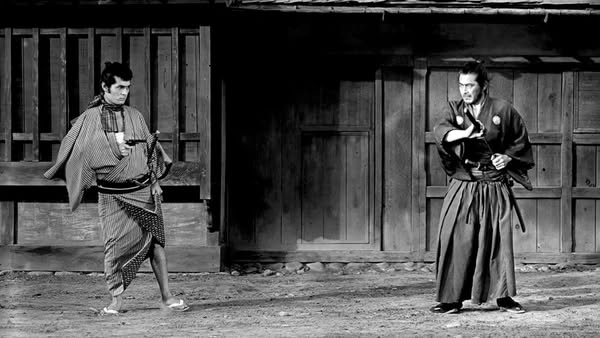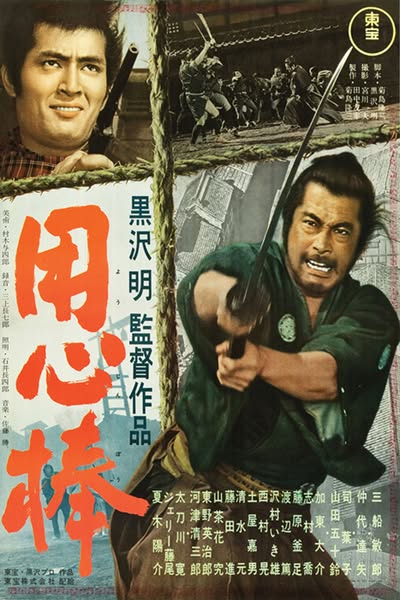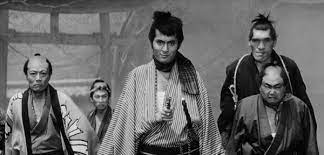Yojimbo (1961)

“Yojimbo,” directed by Akira Kurosawa and released in 1961, is a seminal samurai film that has had a profound impact on cinema, influencing genres across the globe. The film stars Toshiro Mifune as Sanjuro Kuwabatake, a wandering ronin (masterless samurai) who arrives in a small, lawless town caught in a bitter conflict between two rival gangs.
The plot centers around Sanjuro’s clever manipulation of the feuding factions. Upon arriving in the town, he quickly assesses the situation and decides to play both sides against each other for his own benefit, seeking to rid the town of its corrupt elements while also profiting from the chaos. His cunning and combat skills make him a formidable force, but his motivations remain ambiguous, creating a complex character that captures the audience’s attention.

Kurosawa’s direction is masterful, utilizing stunning cinematography and meticulous framing to enhance the storytelling. The film’s pacing is deliberate, allowing tension to build as Sanjuro navigates the treacherous landscape of greed and violence. One of the film’s iconic sequences features Sanjuro engaging in a series of intense duels, showcasing Mifune’s dynamic performance and Kurosawa’s innovative action choreography.

“Yojimbo” explores themes of honor, morality, and the nature of justice. Sanjuro’s actions raise questions about the ethics of his manipulations and the consequences of violence. The film’s dark humor and sharp dialogue add depth, contrasting the brutality of the setting with moments of levity.
The influence of “Yojimbo” is far-reaching, inspiring numerous remakes and adaptations, including Sergio Leone’s “A Fistful of Dollars,” which helped launch the Spaghetti Western genre. Its impact on film language and narrative structure continues to resonate with filmmakers today.

In conclusion, “Yojimbo” is a landmark film that combines compelling storytelling, powerful performances, and stunning visuals. Its exploration of human nature and morality, alongside its innovative approach to action and character development, solidifies its place as a classic in world cinema, showcasing Kurosawa’s genius and Mifune’s iconic presence.











